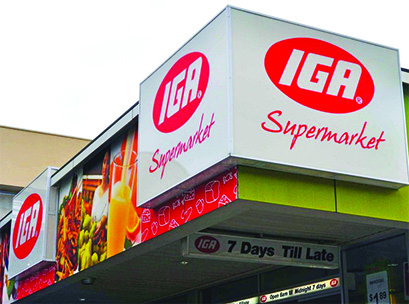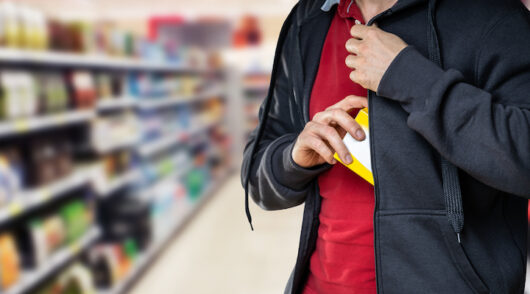 Metcash Limited has reported $95.8 million in statutory profit after tax in the first half of FY19, a 3 per cent increase on the prior corresponding period.
Metcash Limited has reported $95.8 million in statutory profit after tax in the first half of FY19, a 3 per cent increase on the prior corresponding period.
The retailer, which owns the IGA supermarket chain, lifted revenue 2.2 per cent to $6.2 billion for the period and paid an interim dividend of 6.5 cents per share, fully franked.
Metcash group chief executive Jeff Adams said the results were pleasing in the facing of a challenging market.
“It was pleasing to see all pillars contribute to the improved results, with additional synergies from the HTH acquisition being a key driver of increased earnings in the hardware pillar,” Adams said.
“Our supermarkets pillar continued to face challenging market conditions, however it was encouraging to see a slowdown in the rate of deflation which helped deliver an improved sales trajectory for both ourselves and our retailer network.”
The IGA business slowed the decline in like-for-like sales to negative 0.2 per cent growth, compared to the 1.1 per cent decline in the first half of FY18. Supermarket sales for the period were flat at $3.6 billion, with a decline in sales in Western Australia offset by growth on the eastern seaboard.
Looking forward, the business expects the supermarket category to remain highly competitive through the remainder of FY19. Near-term earnings are likely to be impacted by Metcash’s approximately $8 million investment in growth opportunities, but these are expected to deliver earnings benefits beyond FY19.
Metcash’s liquor division, made up of the IBA group and ALM wholesale, increased total sales by 6.7 per cent to $1.8 billion, with wholesale sales increasing 7.2 per cent due to a conversion of contract customers to the IBA banner. The division reported an EBIT of $29.1 million, down from $29.4 million reported in the first half of FY18.
The company expects to see volume growth in the liquor category for the remainder of FY19 and the continuation of trends towards lower consumption of higher quality products.
Hardware sales increased 1.3 per cent to $1.09 billion, and like-for-like sales grew 3.3. per cent, as the closure of unprofitable corporate and joint-venture stores impacted growth. Trade sales now account for roughly 65 per cent of total sales.
EBIT for the hardware division increased to $37.8 million, up from the $28.2 million reported this time last year, with the business noting it expects further softening in construction and DIY activity over the remainder of the year.
Access exclusive analysis, locked news and reports with Inside Retail Weekly. Subscribe today and get our premium print publication delivered to your door every week.





